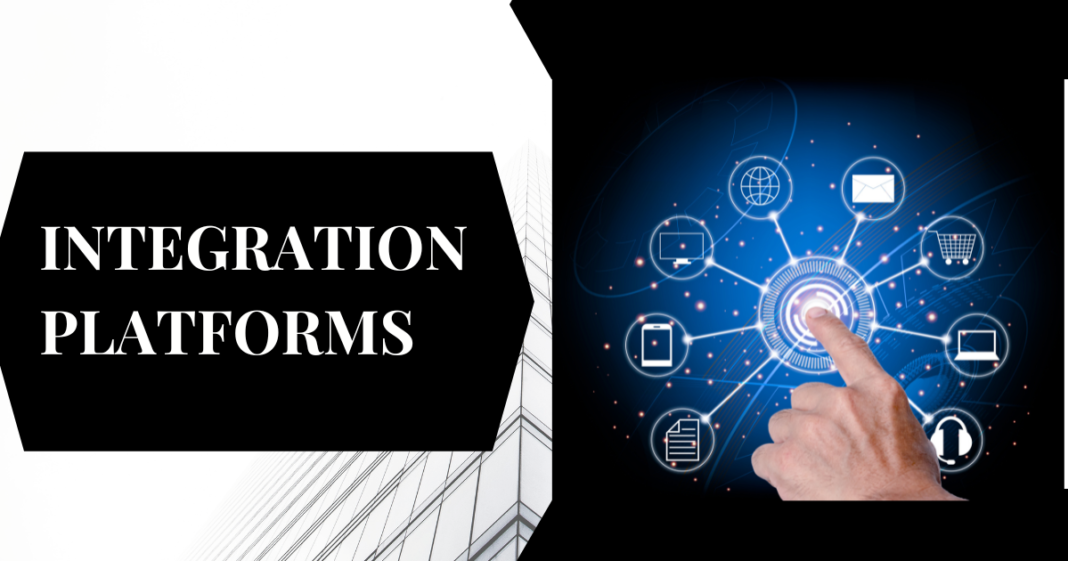Integration Platforms are essential in modern business, facilitating seamless connections between diverse software applications. Serving as a linchpin for efficiency and productivity, these platforms are crucial for organizations aiming to optimize operations and enhance collaboration
What is an Integration Platform?
An Integration Platform is a software solution that facilitates the connection and communication between different applications, systems, and databases within an organization. By streamlining data flow, these platforms eliminate silos and enhance collaboration, ultimately boosting operational efficiency.
Types of Integration Platforms
Integration Platforms can be categorized into several types based on their functionality and scope:
1. Cloud-Based Integration Platforms: These platforms operate in the cloud, enabling seamless integration between cloud-based applications.
2. On-Premises Integration Platforms: Deployed locally, these platforms connect on-site systems and applications.
3. Hybrid Integration Platforms: Combining elements of both cloud-based and on-premises solutions, hybrid platforms cater to diverse integration needs.
Now, let’s delve into the top 7 Integration Platforms for businesses in 2024.
The top 7 Integration Platforms for your business in 2024 are :
1. Zapier
Zapier is a renowned cloud-based integration platform that empowers users to automate workflows between more than 3,000 applications. With a user-friendly interface, Zapier requires no coding skills, making it accessible to a broad range of users.
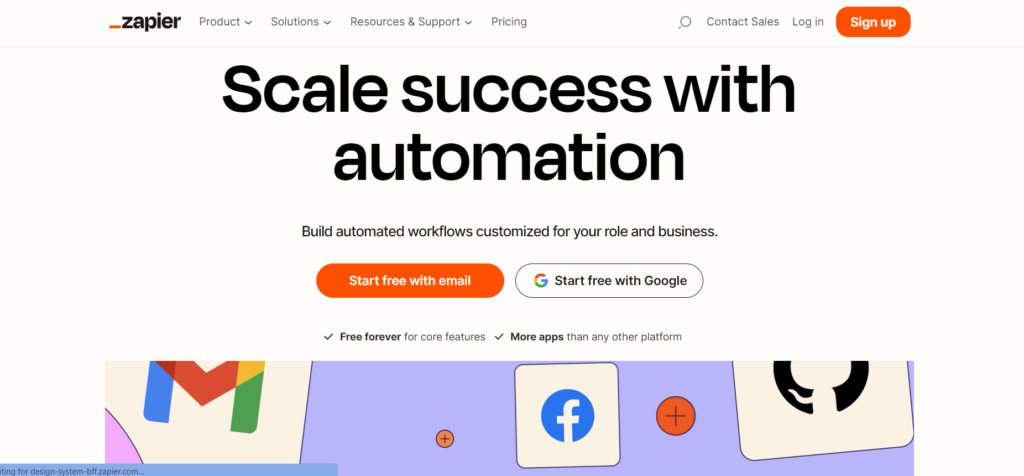
Features
- Automation: Create automated workflows (Zaps) to connect apps and perform tasks.
- Extensive App Library: Supports integration with a vast array of apps, including popular ones like Slack, Gmail, and Trello.
- Multi-Step Zaps: Build complex workflows with multiple actions triggered by a single event.
Limitations
- Complex Workflows: While powerful, Zapier might face limitations for extremely complex or customized workflows.
- Pricing Tiers: Some advanced features are available only in higher-priced plans.
Pricing
Zapier offers a tiered pricing structure, with plans starting from free for basic use, and premium plans for businesses with more extensive integration needs.
2. HubSpot
HubSpot is not just a customer relationship management (CRM) tool; it also offers robust integration capabilities. HubSpot’s Integration Hub allows businesses to connect their CRM with various apps for a seamless flow of data.
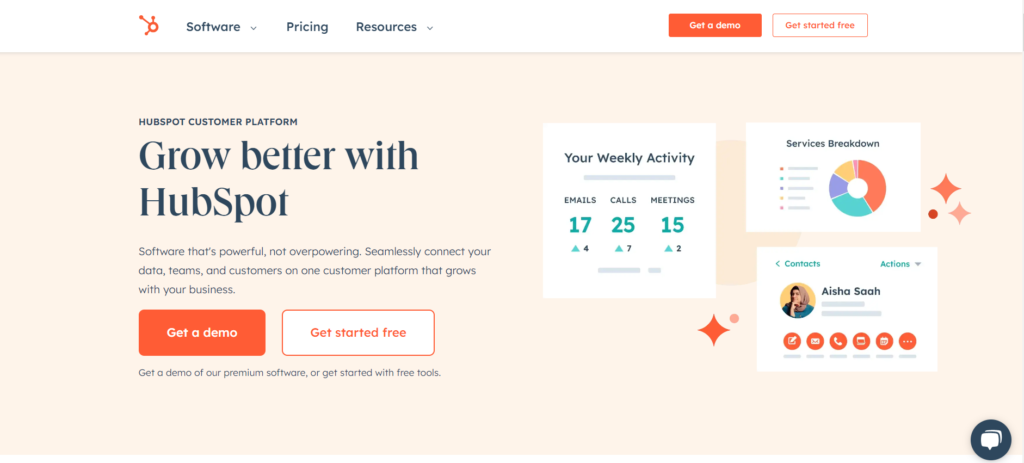
Features
- Unified Platform: Integrates CRM, marketing, sales, and customer service tools in one platform.
- Automation: Automate marketing and sales processes for enhanced efficiency.
- Customizable: Tailor integrations to meet specific business needs.
Limitations
- Learning Curve: Users may experience a learning curve, especially if new to the HubSpot ecosystem.
- Cost: While powerful, HubSpot can be relatively expensive for smaller businesses.
Pricing
HubSpot’s pricing varies based on the services and features required, with options for Marketing Hub, Sales Hub, and Service Hub.
3. Marketo
Marketo, an Adobe company, specializes in marketing automation, including robust integration capabilities. It’s designed to streamline marketing processes and enhance communication with customers.
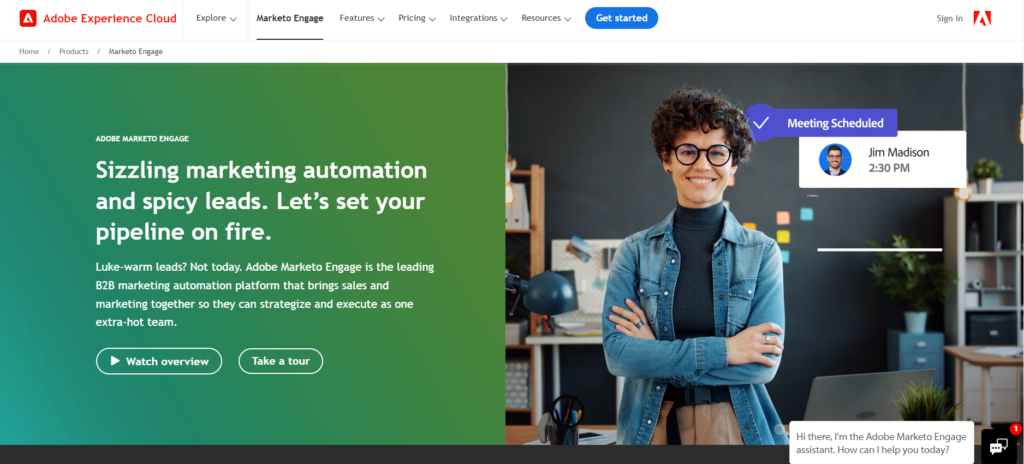
Features
- Lead Management: Efficiently manage leads through automation and personalized marketing.
- Analytics: Gain insights into marketing performance with comprehensive analytics.
- Scalability: Suitable for businesses of all sizes with scalable solutions.
Limitations
- Cost: Marketo can be on the higher end of the pricing spectrum.
- Complexity: Implementation may require expertise or support for optimal utilization.
Pricing
Marketo offers tiered pricing based on the specific needs of businesses, with options for small to enterprise-level organizations.
4. JitterBit
JitterBit is an integration platform known for its flexibility and scalability. It enables businesses to connect different applications, databases, and systems for seamless data flow.
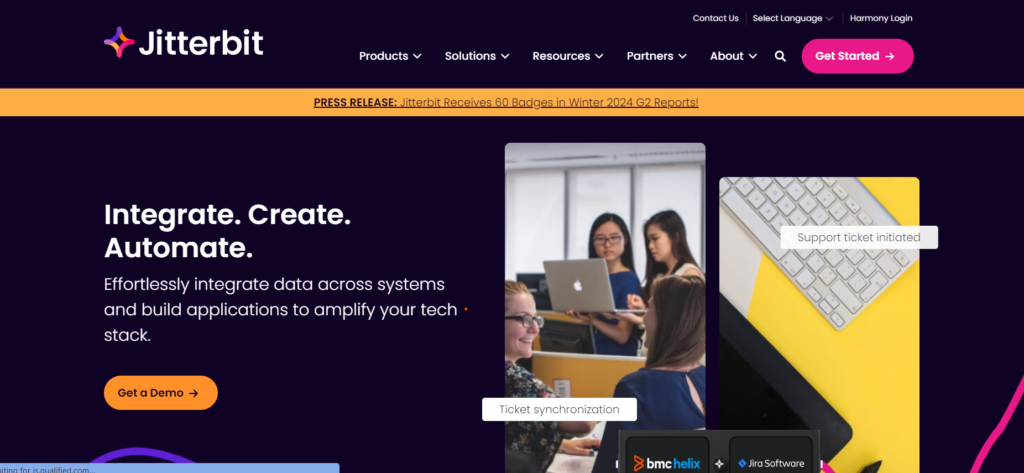
Features
- Real-Time Integration: Facilitates real-time data synchronization between applications.
- API Integration: Robust support for API integration with various applications.
- Low-Code Development: Allows users to create integrations with minimal coding.
Limitations
- Learning Curve: Some users might experience a learning curve, especially those new to integration platforms.
- Customization Complexity: Highly customized integrations may require technical expertise.
Pricing
JitterBit offers pricing based on the specific needs and scale of the integration, with options for different business sizes.
5. ClickUp
ClickUp is a comprehensive project management platform that extends its functionality through seamless integrations. It’s designed to enhance collaboration and productivity within teams.
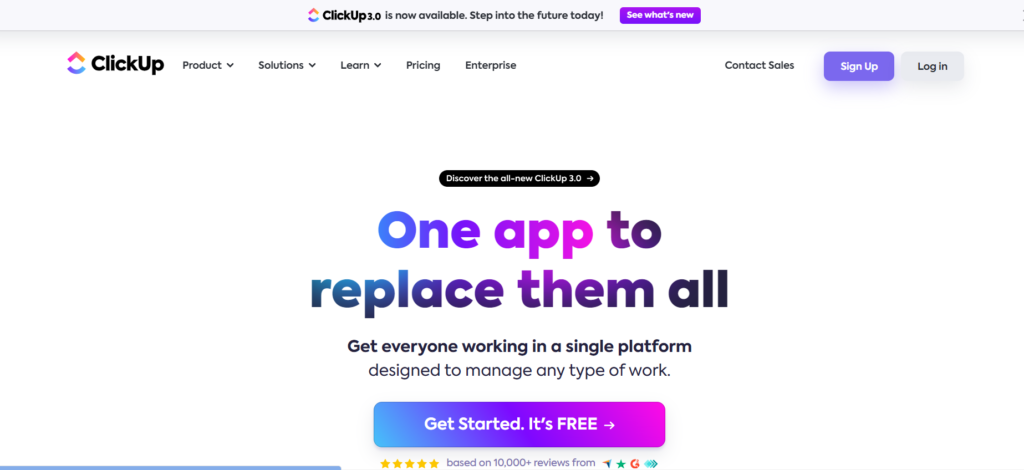
Features
- Task Management: Efficiently manage tasks and projects within a unified platform.
- Customizable Workflows: Tailor workflows to match the unique needs of your projects.
- Integration Marketplace: Offers a wide array of integrations with popular apps and tools.
Limitations
- Feature Overload: Some users might find the platform overwhelming due to its extensive feature set.
- Learning Curve: New users might need time to familiarize themselves with the platform.
Pricing
ClickUp offers a tiered pricing structure, with options for free basic use and premium plans for additional features and capabilities.
6. Celigo
Celigo is an Integration Platform as a Service (iPaaS) that specializes in connecting cloud-based applications. It provides pre-built integrations and tools for businesses of all sizes.
Features
- Pre-Built Integrations: Offers a library of pre-built integrations for popular applications.
- Automation: Automate workflows to improve efficiency and reduce manual tasks.
- Scalability: Suitable for both small businesses and enterprises.
Limitations
- Customization Constraints: While pre-built integrations are convenient, highly customized workflows might face limitations.
- Pricing: The cost may vary depending on the complexity and scale of integrations.
Pricing
Celigo’s pricing is based on the specific needs and scale of integration, with different plans for various business requirements.
7. Sure Triggers
Sure Triggers is a specialized integration platform focusing on triggering actions based on specific events or conditions. It’s designed to automate processes and enhance overall workflow efficiency.
Features
- Event-Based Triggers: Initiates actions based on specific events or conditions.
- User-Friendly Interface: Requires minimal coding, making it accessible to a broad range of users.
- Real-Time Processing: Ensures timely execution of triggered actions.
Limitations
- Scope of Integration: May have a more specific scope compared to general-purpose integration platforms.
- Learning Curve: Users might need time to understand and optimize the use of event-based triggers.
Pricing
Sure Triggers offers different pricing plans based on the features and level of automation required by businesses.
Conclusion
In the evolving business landscape of 2024, strategic selection of an Integration Platform is paramount. Explore the unique features offered by Zapier, HubSpot, Marketo, JitterBit, ClickUp, Celigo, and Sure Triggers, considering your business requirements, budget, and scalability. For further insights and expert recommendations on business optimization, visit PostForSuccess.”


